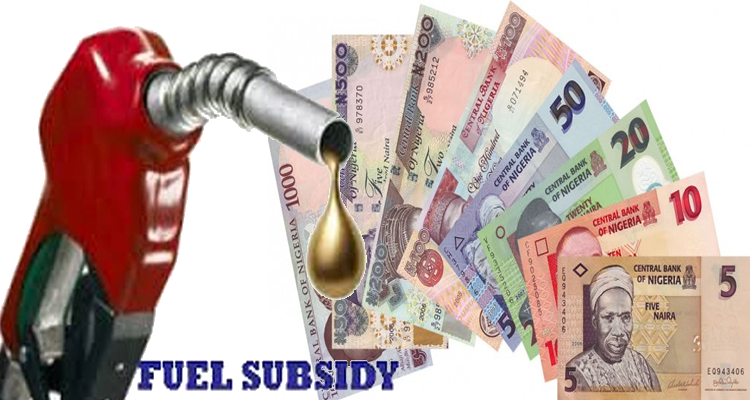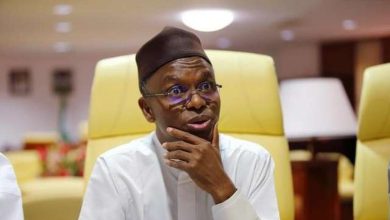Fuel subsidy soars to N3bn in one day under Buhari

Oil price yesterday rose to $70 per barrel, highest level since November 2018, pushing the under recover cost also known as subsidy on Premium Motor Spirit (PMS), popularly called petrol, to N3 billion in one day.
Though the higher crude price increases government’s revenue on crude export, the heavy dependence on import for petrol neutralises the gains as it pushed the landing cost to N205 per
litre for a product that sells at a modulated price of N145 per litre. As of March 20, 2018, when the international benchmark price for oil (Brent) was around $66 per barrel, the expected open market price of petrol, according to data obtained from the Petroleum Products Pricing Regulatory Agency (PPRRA), was around N189 per litre. The agency has not released any data since then.
The Nigerian National Petroleum Corporation (NNPC), on December 23, 2017, this newspaper recalls, said the Federal Government had been resisting intense pressure to increase the pump price of petrol, noting that the landing cost of the commodity was N171.4 per litre as of December 22, 2017 when oil price was around $64 per barrel.
By adding the N14.3/litre for other cost elements such as retailers’ margin, bridging fund, dealers’ cost and transporters’ pay, as captured in the last published template of the PPPRA, the landing cost on $70 per barrel crude price yesterday hit N205 per litre while the pump price remains at N145/litre. With the modulated pump price, the NNPC further recorded N60 per barrel under recovery cost also known as subsidy, amounting to N3 billion on a total of 50 million litres daily imports.
The corporation, sole importer of the product, said in a statement at the weekend that it now imports an average of 50 million litres of the product daily, starting from Friday, April 5, 2019.
Exposed!! Popular Abuja doctor revealed how men can naturally and permanently cure poor erection, quick ejaculation, small and shameful manhood without side effects. Even if you are hypertensive or diabetic . Stop the use of hard drugs for sex!! It kills!
International benchmark Brent futures were at $70.67 per barrel on Monday, up 33 cents, or 0.5 per cent from their last close, while the U.S. West Texas Intermediate (WTI) crude were up 33 cents, or 0.5 per cent, at $63.41 per barrel. Brent and WTI both hit their highest levels since November last year at $70.76 and $63.48 per barrel, respectively, early yesterday, putting more pressure on NNPC.
The Chief Executive Officer/ Executive Secretary, Major Oil Marketers Association of Nigeria (MOMAN), Mr. Clement Isong had, while reacting to a similar price in November 2018, said that with oil price at $70, it was impossible for marketers to import petrol and sell at N145 per litre because it came in about N200 to N205 per litre.
“Currently, this burden is being borne by government for Nigerians, but the truth is that it is not sustainable; it is just too heavy,” he added.
The outstanding subsidy debts owed marketers by the government, according to him, remain the primary problem. The debt, he said, “creates serious working capital constraints for all marketers, not just MOMAN, and makes it difficult to run our business. Any business that is owed so much debt will struggle.”
Meanwhile, Saudi Energy Minister, Khalid Al-Falih, met with President Muhammadu Buhari and discussed cooperation between the two OPEC member countries in the energy sector, the minister said in a tweet at the weekend.
Al-Falih said that he met with President Buhari on the sidelines of the World Economic Forum on Middle East and North Africa in Jordan, where they discussed “ways of cooperating in the fields of energy and industry, and the importance of cooperation for the stability of the global oil market.”
Brent prices, according to U.S. bank, J.P.Morgan, increased more than 30 per cent year-to-date as OPEC continued to cut supply for four months in a row and optimism over U.S.-China trade talks helped to buoy the demand outlook.
Energy consultant, FGE, said the OPEC-led supply cuts meant “excess inventories are disappearing and the market looks healthy,” adding that “the market is poised for prices to rise to $75 per barrel or higher” for Brent. Oil prices have also been driven up by U.S. sanctions against OPEC-members Iran and Venezuela.




